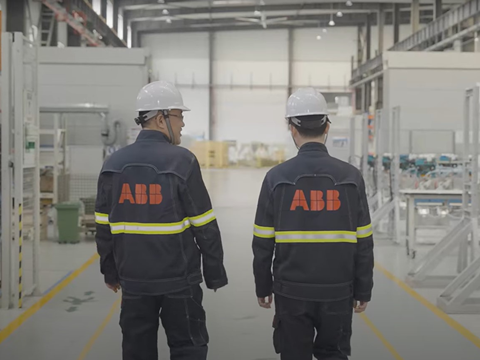
As a new investor in Arctial, ABB will contribute to ‘in-depth’ feasibility studies for the Greentop low-carbon aluminium smelter project in Finland, set to become Europe’s ‘first’ primary aluminium development for over 30 years.
Arctial intends to explore the business case for a manufacturing facility located in the Kokkola and Kronoby regions on Finland’s west coast. It is currently working to evaluate the commercial, environmental, social, and technical factors involved.
ABB’s role will be to assess the feasibility of an electrification and automation scope; this involves the use of high power rectifiers, high voltage switchgear, transformers, and substations.
The project comes in response to high global demand from the packaging industry, among others, and is set to utilize low-carbon energy from both new and existing renewables infrastructure. Local and global industry partners are expected to participate.
ABB aspires to unlock energy and resource efficiency, reliability, and safety throughout the operation. A dedicated team will set out to develop front-end engineering and design, an early works package description, budget, timeline, and safety risk assessment.
While the details of ABB’s investment have not been disclosed, the deal was signed in Q1 2025. Regarding a production facility, Arctial plans to make a final investment decision in 2026-2027, following a ‘comprehensive’ evaluation process.
“Working in partnership across industrial supply chains is a critical part of our strategy,” said Torbjörn Sternsjö, CEO of Arctial. “Our commitments through collaboration bring invaluable strategic insights, increased knowledge and additional networks. We’re looking forward to the results of what we will achieve together with our investment partners.”
“As a partner with early involvement in Arctial’s low-carbon aluminium project we intend to bring not only investment but also our generations of expertise,” said Joachim Braun, division president at ABB Process Industries. “We have gained insight into the impacts this project can have across the European supply chain for industries and everyday consumers. We believe that our technological influence can help this development become reality.”
The news comes after Speira announced upgrades to its Grevenbroich and Töging aluminium recycling plants; four tiltable rotary furnaces would be integrated to handle heavily contaminated scrap and dross, or ‘low grades’, produced during the melting process.
Ardagh Glass Packaging-Europe also took steps to save CO2 at its Limmared facility by introducing a hydrogen electrolyzer to melt glass with green hydrogen. Between October and December 2024, it claimed to have saved 70 tonnes of CO2.
More recently, ABB Robotics has revealed a new generation of its IRB 1200 robots, which are designed to bolster productivity and efficiency during handling, assembly, and dispensing processes.
If you liked this story, you might also enjoy:
The ultimate guide to the Packaging and Packaging Waste Regulation in 2025
How are the top brands progressing on packaging sustainability?
Everything you need to know about global packaging sustainability regulation in 2025
The key to increasing the use of reusable packaging in supermarkets













No comments yet